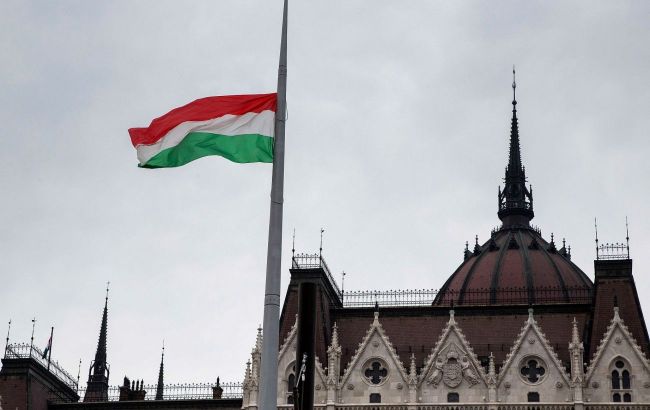EU allocates €900 million to Hungary for it to lift veto on Ukraine aid
 Illustrative photo (Getty Images)
Illustrative photo (Getty Images)
The European Commission has approved advance payments of 900 million euros to Hungary as part of its previously frozen allocation in the recovery funds. That wat the EU is trying to overcome Budapest's veto on assistance to Ukraine, Reuters reports.
Earlier, the European Commission excluded Hungary from the bloc's post-pandemic economic stimulus due to concerns about corruption and the rejection of democratic checks and balances under the leadership of Prime Minister Viktor Orban.
In turn, Hungary blocked EU decisions, expected next month, to provide Ukraine with economic assistance of 50 billion euros by 2027 and the start of accession talks with Kyiv. Budapest also froze the plan to provide military assistance to Ukraine from the EU, amounting to 20 billion euros, and opposed sanctions against Russia for its actions in the war.
EU support is crucial for Ukraine, which has been grappling with the aftermath of the full-scale Russian invasion since February 2022.
Orban, promoting his ties with Moscow, claims that Hungary is no more corrupt than other EU countries.
Budapest has launched a propaganda campaign tarnishing the European Commission, and Orban's party, Fidesz, is pushing a bill for the protection of national sovereignty against foreign interference — both moves escalating tensions between Hungary and the EU.
Trade with Hungary
Advance payments, not subject to the usual rule-of-law conditions associated with EU financial assistance, fall under the auspices of RePowerEU, a part of the EU's post-pandemic stimulus aimed at supporting the energy transition away from fossil fuels.
EU officials said that Hungary's revised recovery plan amounts to a total of 10.4 billion euros over several years — about 5% of Hungary's GDP in 2023 — including 4.6 billion euros under RePowerEU: 0.7 billion euros in grants and 3.9 billion euros in loans.
EU officials also addea that Hungary would use RePowerEU funds to modernize its electricity sector with smart meters and the digitization of energy companies.
The European Commission's approval of Hungary's revised recovery plan must be endorsed by other EU countries, possibly during the negotiations on December 8 among finance ministers of the 27 EU member states.
EU officials expect two payments of around 460 million euros each next year.
Officials insist that Hungary must meet EU conditions on tackling corruption and ensuring the independence of the judicial system, among other things, to access additional funds.
Last month, EU officials announced that the bloc was considering providing assistance to Hungary to secure Budapest's support for Ukraine. However, sources involved in preparing the EU leaders' summit on December 14-15 to discuss Ukraine have recently expressed growing skepticism about the influence that can be exerted on Orban.

